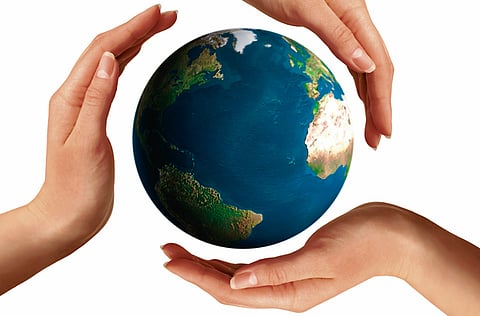Protecting the future
Walter D'Mello throws some light on corporate social responsibility, the Norwegian way

Over the last couple of years, the ethical aspect of corporate social responsibility (CSR) has gained momentum, bringing to light problems such as protection of human rights, employee-working conditions, child labour, impact on the environment and corruption.
The Norwegian government's position is that CSR involves companies integrating social and environmental concerns into their day-to-day operations, as well as in their dealings with stakeholders. Accordingly, Norwegian companies have been at the forefront of addressing these issues and in building economic activities in a socio-sustainable business model.
The United Nations defines sustainable development as growth that meets the needs of the present without compromising the ability of future generations to meet their own needs.
Building relationships
Halvard Sagdahl, General Manager of Kongsberg Maritime Middle East, which deals in hi-tech systems and solutions to the oil and gas sector and the merchant marine industries, says: "CSR means taking into account the communities in which the group operates, and which are affected by our activities. It also involves relations with employees, external stakeholders and society at large.
Kongsberg systematically reports data associated with energy consumption, waste treatment and chemicals consumption. The information makes us aware of the challenges, enabling us to initiate improvement measures."
Since 2006, it has been a member of Global Compact, a voluntary UN initiative under which businesses respect ten principles associated with human rights, labour rights, environmental obligations and the fight against corruption.
Isklar, a Norwegian natural mineral water company, is committed to continuously reducing emissions and both the company and its products are certified ‘carbonneutral'.
This has helped Isklar to get traction with customers, the press and consumers in many markets, mentioned Helge Valeur, CEO of Isklar.
Jannik Lindbaek, former chairman of the board of directors at Statoil, says, "In the oil and gas industry, the streams of revenue we generate are vast. The larger the revenue stream, the greater the danger and closer the link with conflict." Control is of utmost importance to ensure growth and avert devastation.
The Norwegian Investment Fund for Developing Countries (Norfund), another initiative by the Norwegian government, invests equity and other risk capital, providing loans and guarantees for the development of sustainable businesses in least developed countries.
Concern over outsourcing
Social responsibility in the supply chain is attracting growing attention in Norway in this era of outsourcing. There is a concern that goods imported to Norway should be produced under satisfactory working conditions, and that factors such as labour rights and environmental considerations should be taken into account.
Several universities and university colleges in Norway have integrated CSR modules in their bachelor and master's degree programmes to educate the future managers and implementers of CSR in Norwegian companies.



